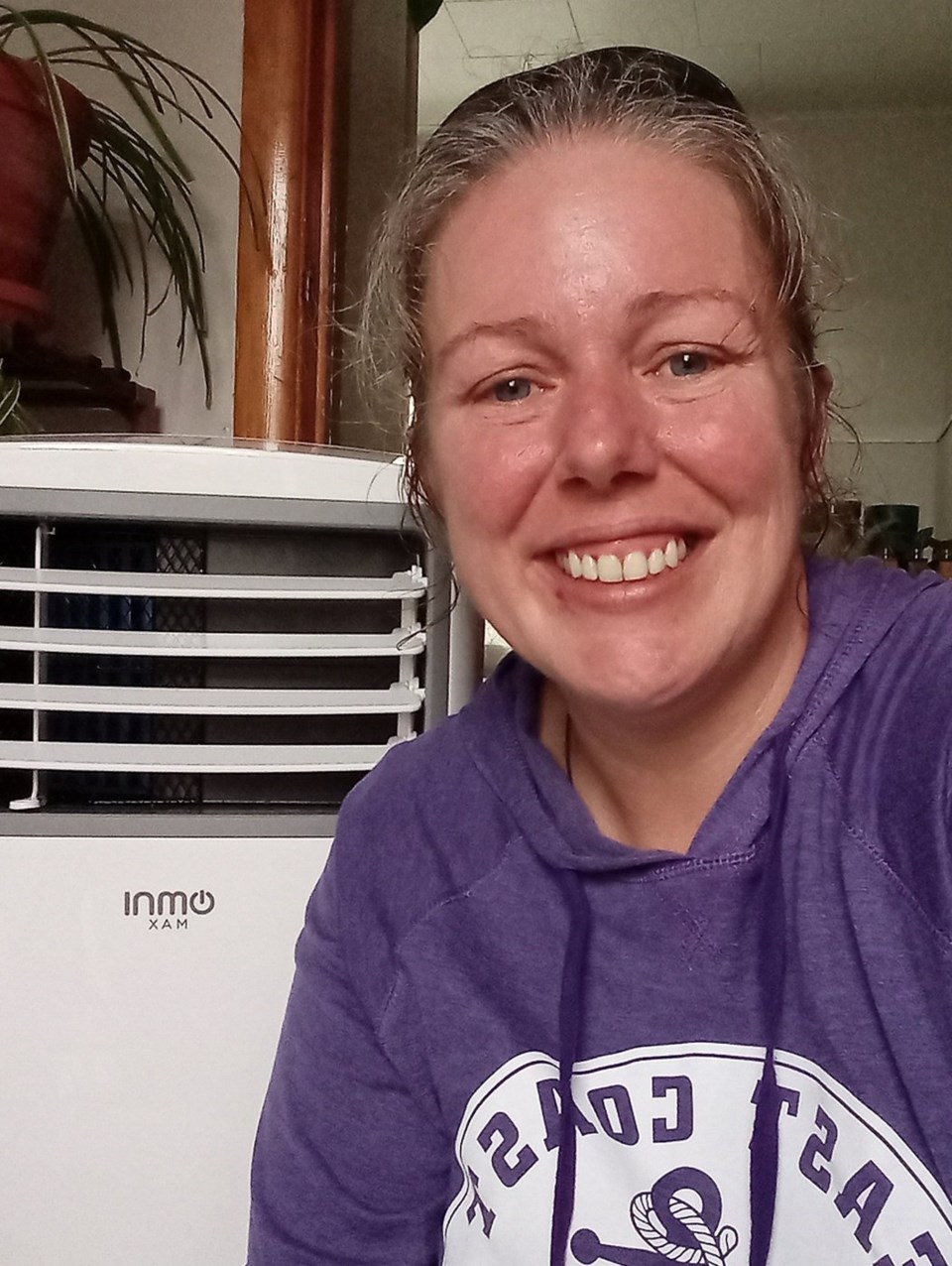HALIFAX — A Nova Scotia woman on income assistance who succeeded in forcing the province to pay for her air conditioner says she's frustrated other low-income people won't get the same relief.
"I feel very sad. This policy needed to be amended," said Julie Leggett in an interview Wednesday, as temperatures soared to 32 C in some parts of southern Nova Scotia.
Last October, the 44-year-old from New Glasgow, N.S., won an appeal to receive provincial funding for an air conditioner because of health conditions. She argued successfully that without the small unit she purchased last summer, heat would cause her chronic pains to intensify.
But the decision by the income assistance appeal board didn't force the province to cover the cost of air conditioners for other low-income people who have health issues that could be worsened by heat.
Leggett raised her concerns during the November provincial election campaign, arguing government policy should be changed to help people cope during heat waves, which have been increasing in frequency and intensity.
Progressive Conservative Leader Tim Houston, whose party won the Nov. 26 election, had said on the campaign trail that he would look into adding air conditioners to a list of special needs covered by the social assistance program.
On Nov. 5, the premier said air conditioning "would be something we should look at and we'd be happy to look at that."
But a spokesperson for the Department of Social Development said on Tuesday that the government was "not planning a change to this policy."
Leggett said the decision undermines the intent of the Employment Support and Income Assistance Act, which offers provincial funding for items "prescribed as essential for the health of the applicant."
Ultimately, she said the decision ignores the cost to the health system if people cannot maintain reasonable temperatures in their homes. "It requires more health-care resources to care for people whose illnesses worsen" during heat waves, she said.
Lina Hamid, an Opposition NDP member of the legislature, said in an email Wednesday that the failure to adjust the policy is creating risk for many citizens.
"Extreme heat is dangerous and is a health threat for Nova Scotians, especially seniors and those with chronic illnesses," Hamid said. "As we face more extreme temperatures like we're seeing this week, the government needs to take this issue seriously."
"The premier said his government would look at making a change and the fact that the department has no plans to update the policy to help those who are struggling in the heat is deeply concerning."
Jacqueline Wilson, a lawyer with the Canadian Environmental Law Association, said in a telephone interview Wednesday that policymakers need to understand that because of climate change, cooling systems are becoming as essential as heating systems in Canada.
"There is this understanding of air conditioning as a luxury item and it's just not — you wouldn't say that heating somebody's apartment to a minimum level in the winter in Canada is a luxury," she said.
"It's absolutely necessary to keep people safe."
In Ontario, people with disabilities or certain health conditions can receive provincial funding for air conditioners. However, she said her organization has received reports that access to the funding varies, describing the Ontario provincial system as a "patchwork."
Her group has joined forces with the Advocacy Centre for Tenants Ontario and the Low-Income Energy Network to call for provincial and municipal governments to require landlords to provide access to a cooling system during periods of extreme heat.
"The best way to move forward to ensure everybody has access to cooling as needed is to create cooling standards that can be enforced," she said.
This report by The Canadian Press was first published June 25, 2025.
Michael Tutton, The Canadian Press



